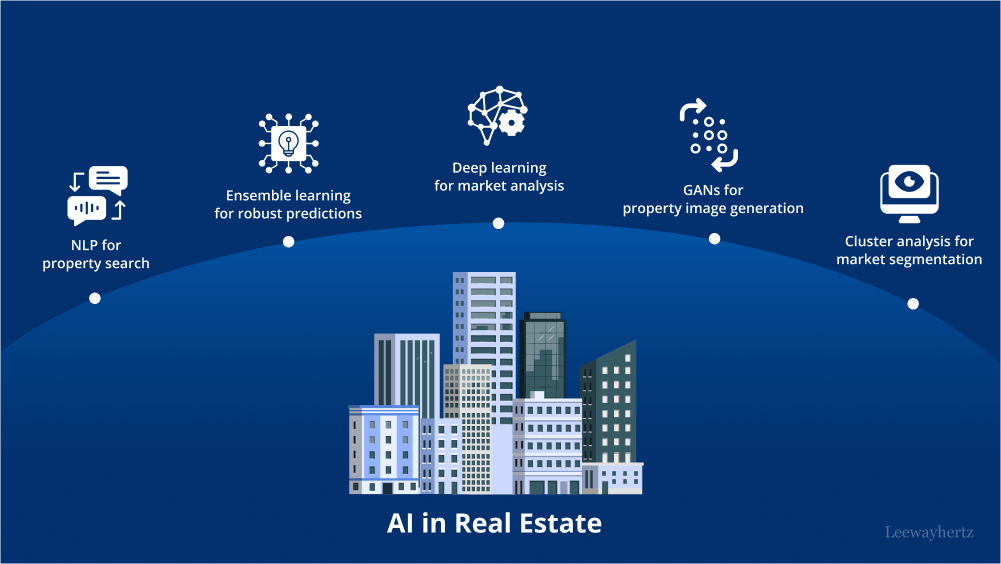Artificial Intelligence (AI) is reshaping the real estate industry by optimizing processes, improving decision-making, and enhancing the customer experience. From property search to predictive analytics, AI offers a wide range of opportunities that are transforming how real estate professionals operate and how buyers and sellers interact with the market.
How Is AI Used in Real Estate?
AI in real estate involves the use of algorithms, machine learning, and data analysis to automate tasks, identify trends, and deliver smarter solutions. By leveraging AI, real estate companies can gain a competitive edge and deliver more personalized, efficient services.
Key Opportunities in AI and Real Estate
Predictive Analytics for Property Valuation
AI models can analyze vast amounts of data—such as location, market trends, nearby amenities, and historical pricing—to predict future property values. This helps investors make informed decisions and minimizes risks in both residential and commercial real estate.
Smart Property Search and Recommendations
AI-powered search engines on real estate platforms learn user preferences to offer personalized property suggestions. These systems consider factors like budget, location, size, and lifestyle needs, making property discovery faster and more relevant for buyers.
Automated Virtual Assistants and Chatbots
Real estate agencies are deploying AI-driven chatbots to answer customer queries 24/7. These virtual assistants can schedule viewings, share property details, and even guide users through mortgage options—improving customer service and saving time.
AI in Marketing and Lead Generation
AI tools can segment audiences, optimize ad campaigns, and generate leads by analyzing online behavior and engagement. This allows real estate marketers to reach the right customers with the right message at the right time.
Smart Home Integration
AI enhances smart homes with automated lighting, climate control, and security systems. Real estate developers are leveraging this technology to add value to properties and attract tech-savvy buyers.
Fraud Detection and Risk Management
AI can detect anomalies in transactions and documentation, helping prevent fraud in property deals. It also assists banks and lenders in assessing borrower risk more accurately, speeding up the approval process.
AI for Urban Planning and Development
AI-powered tools help city planners and developers analyze traffic, population growth, and environmental factors. This leads to better planning decisions and sustainable real estate development projects.
Considerations for AI in Real Estate
While AI offers many benefits, real estate professionals should consider:
- Data Privacy: Ensure customer data is protected and used responsibly.
- Bias in Algorithms: Monitor for biased predictions that may unfairly impact property evaluations or loan approvals.
- Transparency: Be clear about how AI tools influence decision-making, especially in pricing and customer interactions.
Conclusion
AI is revolutionizing the real estate sector with smarter tools for buyers, sellers, agents, and developers. From enhancing customer experiences to driving data-informed strategies, the opportunities are vast and growing. Embracing AI with ethical practices and a focus on innovation can lead to more efficient, transparent, and successful real estate operations.







Leave feedback about this